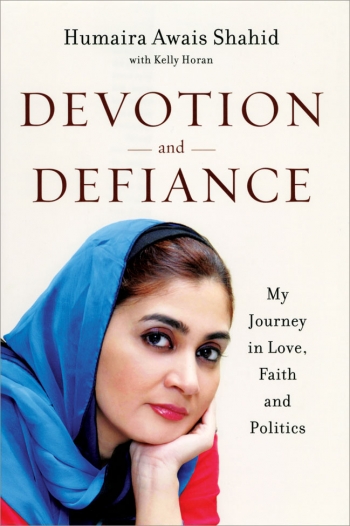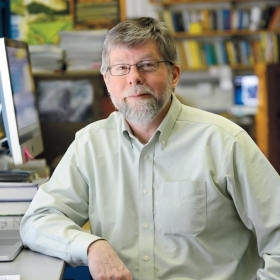I was having trouble hearing her. With rolling blackouts in Lahore, Pakistan, and a faulty Skype line, we wouldn’t get far that day. Through rough crackles, I heard Humaira say, “Dearest, I can’t hear you! Same time tomorrow, insh’Allah.”
I met Humaira Awais Shahid, a Pakistani human-rights activist, journalist, and member of parliament, in 2010, when she was a fellow at the Radcliffe Institute for Advanced Study in Cambridge, Mass. We were both 39: she, a hijab-wearing devout Muslim, a widowed mother of three; I, a nonpracticing Catholic for whom marriage and motherhood were yet to come. But for all that we didn’t share, we connected instantly.
Humaira told me about her faith, and argued that it is through Islam, not in spite of it, that positive changes will come to Pakistan. I wasn’t sure I shared her point of view, but I was intrigued. I agreed to write a book proposal about her life and work. Days after her memoir sold, Humaira returned to Lahore to resume advocating for the rights of women, girls, and the poor and to serve a second term in the Punjab Provincial Assembly. She planned to work on her book with another writer. I couldn’t wait to read it.
By 2011, my life had expanded by the factor of one husband and one baby boy when Humaira called out of the blue. Working with a young male ghostwriter in Pakistan had proved unfruitful. “I can only talk to you,” she said, “I don’t know what it is, but you make me tell you things!”
I considered traveling to Pakistan to immerse myself in Humaira’s life. I envisioned poring over family photographs, inhaling the spores of history in her ancient city, making dinner for her kids. But with a new baby, it was out of the question. Skype interviews would have to do.
For 18 months, I lived two lives: my present, and Humaira’s past. From my desk in Massachusetts, I conjured memories of places, faces, and moments that weren’t mine. I became a literary ventriloquist, synthesizing Humaira’s voice. When she described collecting hairs from her husband’s clothing following his sudden death at 37, she didn’t have to tell me why she did it—but it was agonizing to write. “I am burdening you with sorrow!” Humaira said. On the contrary, I told her, I felt privileged.
After reading our manuscript, Humaira’s father told her, “It sounds just like you.” It was the best review I could have hoped to receive.
It was the best life I never lived.
Horan is an award-winning public-radio producer, freelance writer, and author, with Humaira Awais Shahid, of Devotion and Defiance: My Journey in Love, Faith and Politics.








We ask that those who engage in Wellesley magazine's online community act with honesty, integrity, and respect. (Remember the honor code, alums?) We reserve the right to remove comments by impersonators or comments that are not civil and relevant to the subject at hand. By posting here, you are permitting Wellesley magazine to edit and republish your comment in all media. Please remember that all posts are public.